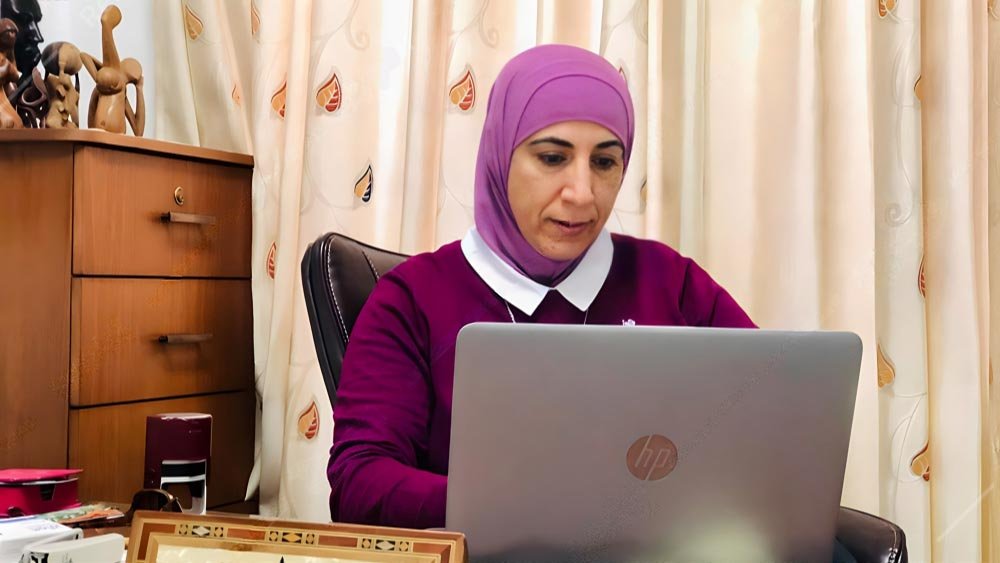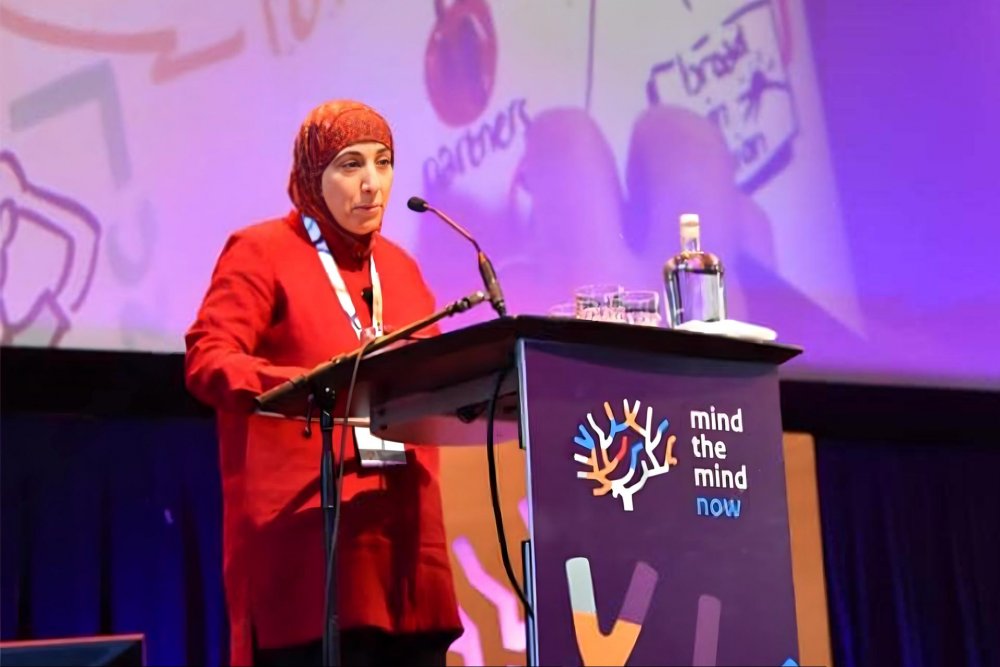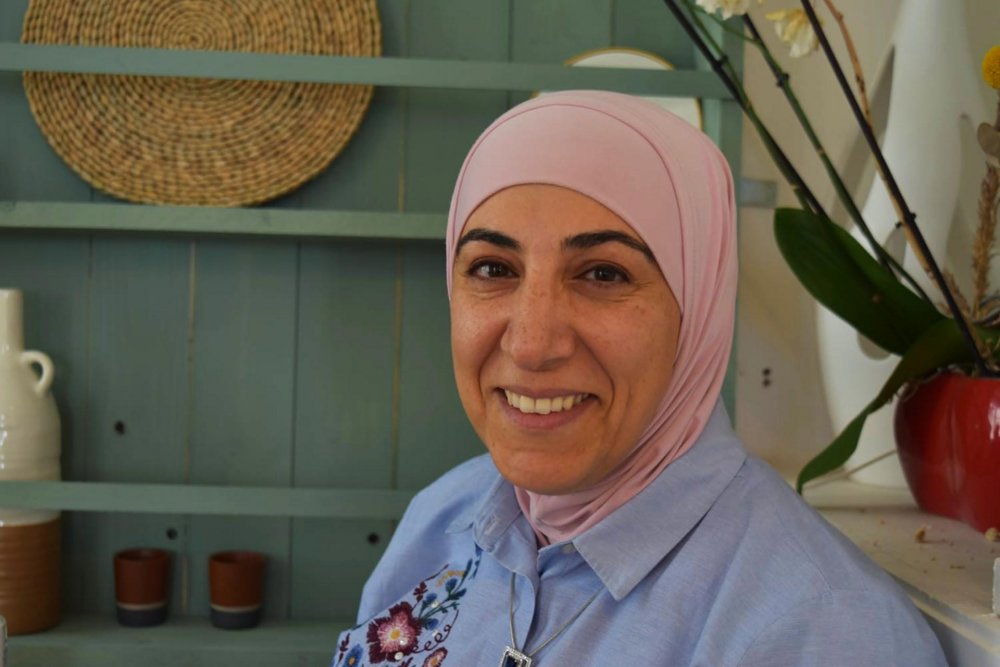Palestinian Jerusalemite psychiatrist Samah Jabr lives and works on a seam in Palestinian life that is invisible to most: the thin boundary that exists between the crushing day-to-day realities of military occupation, and the human capacity to endure them.
As the chair of the Palestinian Authority (PA)’s Mental Health Unit in the Palestinian Ministry of Health she traverses East Jerusalem, the rest of the West Bank, and the Gaza Strip, coaching, advising, and managing the very small cohort—there are only 34 trained psychiatrists—responsible for the well-being of 5.35 million Palestinians.
Some situations she describes are unimaginable. A woman has numerous symptoms of trauma. She was fleeing in a vehicle with her family in the middle of Israeli bombardment—an apocalyptic hellscape where every intersection was cut off by falling missiles—when her child fell from the vehicle. The family was unable to turn around to get her child, and the mother, years later, cannot forgive herself.
In another instance, Dr. Jabr was training a team of medical professionals how to recognize suicidal thoughts and feelings in their patients when one of the doctors confessed that he himself could not stop thinking about ending his own life. He is unable to escape the memories of triaging patients struck by Israeli shelling, he says, haunted by the decisions he made as to who would get immediate attention in his resource-poor hospital, essentially sentencing the patients to live or die.



